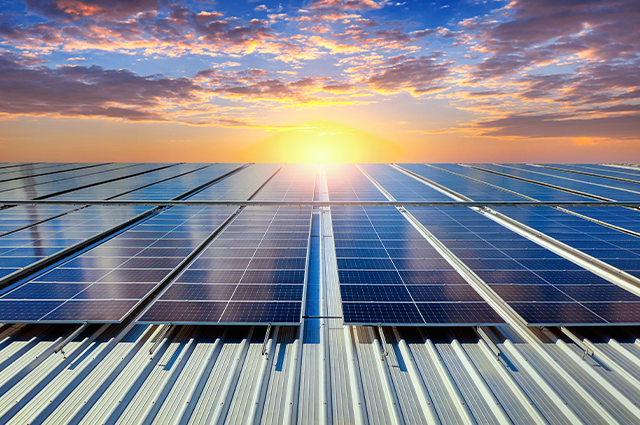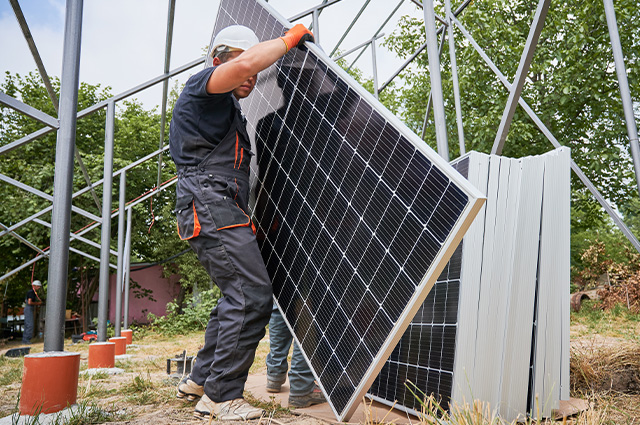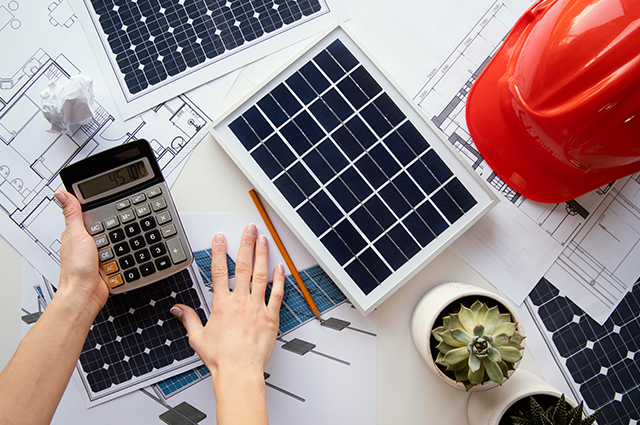Solar energy has become one of the best alternatives for producing clean and sustainable electricity. However, many consumers question how much energy a solar panel can actually produce and what factors influence this production. In this article, we explore solar panel energy production, their efficiency, and the elements impacting system performance.
Photovoltaic Panel Power
Solar panels are classified by their nominal power, expressed in watts (W). The power indicates the amount of electricity the panel can generate under ideal test conditions (known as STC – Standard Test Conditions). Currently, residential solar panels typically range between 400W and 500W (above this range we have panels that are "too large," below this are generally less efficient models), while commercial panels can exceed 700W.
The amount of energy generated by a solar panel depends on several factors, including available solar radiation and tilt angle. A 500W panel can generate between 1 and 3 kWh per day (winter/summer), averaging above 2 kWh daily in areas with relatively good solar exposure. However, production greatly varies depending on location and installation method.
Efficiency of Solar Panels
Solar panel efficiency measures the equipment’s ability to convert sunlight into electricity. Currently, the average efficiency of photovoltaic solar panels usually ranges from 15% to slightly above 23%. This means that only this percentage of all received solar energy is transformed into usable electricity.
Higher efficiency solar panels generate more electricity in a smaller area, making them ideal for locations with limited space. Conversely, lower-efficiency panels can be an economical option for those with ample installation space.
Factors Influencing Solar Production
The energy output of a solar panel doesn’t solely depend on its power and efficiency. Various factors can affect system performance, such as:
Solar Radiation: The amount of sunlight received directly influences energy production. Regions with more sunny hours per year will achieve higher yields.
Tilt and Orientation: For maximum energy production, panels should be correctly tilted and oriented south (in the northern hemisphere) or north (in the southern hemisphere).
Ambient Temperature: Interestingly, extremely high temperatures can reduce solar panel efficiency. Performance typically decreases above 25ºC due to increased electrical resistance in photovoltaic materials.
Sombra ou sujidade: Qualquer obstáculo que crie sombra sobre os painéis solares, como árvores, edifícios ou sujidade acumulada, pode comprometer significativamente a energia gerada por painel solar.
How Much Energy Can a Solar System Produce?
If a 400W solar panel generates approximately 1.6 kWh per day (annual average), a system consisting of 10 panels could produce around 16 kWh daily. This production is sufficient to power an average consumption household.
Here’s a practical example:
3 kW system (approximately 7 to 8 panels) → Average production of 12 kWh/day
5 kW system (approximately 12 to 14 panels) → Average production of 20 kWh/day
10 kW system (approximately 25 to 28 panels) → Average production of 40 kWh/day
These figures are indicative and may vary depending on specific local conditions.
How to Maximize Solar Energy Production?
To obtain the maximum performance from your photovoltaic solar system, following some best practices is essential:
Proper Installation: Choose a certified installer to ensure optimal orientation and tilt of the panels.
System Monitoring: Regularly track panel performance through monitoring platforms.
Periodic Maintenance: Clean panels regularly to prevent dirt accumulation that reduces efficiency.
Use Quality Inverters: Efficient inverters guarantee maximum conversion of solar energy into usable electricity.
Conclusion
The amount of energy generated by a solar panel depends on various factors, including its power, efficiency, location, and weather conditions. To maximize energy production, ensuring optimal installation and performing regular maintenance is crucial.
Investing in photovoltaic panels not only reduces reliance on the electricity grid but also provides significant long-term savings. If you're considering installing a solar system, consult an expert to find the best solution for your needs.
Want to know more about how solar panels can benefit your home or business? Contact Sol Mais Energia and discover how to start producing your own sustainable electricity!







